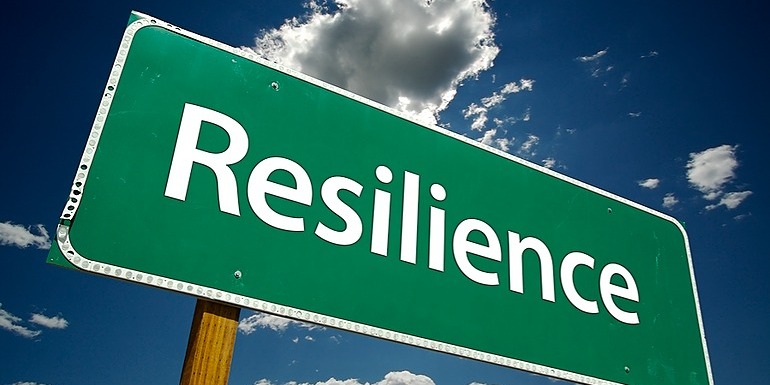Identify your known sources of strength
Write down not just the ones that come to mind — family, friends, faith, pets, music and hobbies — but think about the things that bring you happiness and create strength.
Social support is protective, so reclaim relationships.
When you connect with others, you build resiliency. If you feel alone, even during those times when you feel like being alone, take a minute to call a friend or video-call a loved one.
Reframe your thoughts in solution-oriented way.
Ask yourself if you can change the problem at hand, and if so, how? If not, how can you accept it?
Envision positive outcomes.
This may seem simplistic, but resiliency is built in part on positivity. It’s not “touchy-feely,” but rather, fostering optimism and envisioning positive outcomes to improve your outlook.
Express gratitude.
Each day identify something you are thankful for — and why.
Set the tone for each day.
Take charge of the day from the outset with a healthy and positive habit. It can be five minutes of mindful meditation or prayer, ten minutes of stretching or even just a few minutes to focus on your goals for the day.
Limit your media exposure
and the amount of time spent on social media to maintain a positive outlook. Continual review of negative stories and outcomes can increase your stress.
Create a list of tips and resources that you’ve tried and categorize them
— what worked well, what you’re willing to try, what didn’t work for you, etc. Experiment with new approaches.
Wellness Resources
It goes without saying that physical health and mental health are intricately linked. You already know that you should be eating healthy, exercising and making a concerted effort to get quality sleep.
- Emily Boris, LPC, LLC













